All images courtesy of Salty Xi Jie Ng save where otherwise stated.
“When you’re in your 20s and you say you’re in an intimate relationship, people know you’re referring to sex,” says Zubee Ali. “But at my age, intimacy is no longer about sex, and I wonder when and why this change happens.”
“Does our concept of intimacy broaden? Do those desires go away? Are you compensating for something, or adapting to the shrinking world you find yourself in without planning to?” she continues.
“When you spend 20-plus years raising your family, you don’t have much time to pursue your interests or ask yourself, Who am I? You’re so busy being a mother that you don’t really consider your self-actualisation.”
Zubee is one of the performer-contributors in Not Grey, a live-streamed digital performance for T:>works’ Not Ordinary Work (N.O.W) festival, which explores ageing and intimacy amongst older women. (At 59, she jokes she’s slightly too young for the show; all the other performers are over 60.)
Although I’m half her age, her words strike a chord. They’re a variation of thoughts I’ve had myself and heard expressed by many other women, some my age and others decades older.
Just a few days before speaking with Zubee, I’d watched her co-performer, Faizah Jamal, 61, rehearse her monologue for Not Grey. As she recounted the story of her life—from climbing mountains in Borneo and making friends with the orang asli, to the breakup of her marriage and leaving her career in law—she recalled how her younger self had contemplated a life without labels.
“Who am I if I’m not a lawyer?” she asked. “Who am I if I’m not a wife?”
What does it mean, as a woman, to no longer define yourself in relation to the people in your life—as a wife, mother, grandmother, daughter? What does it take to be the writer of your own story? What is intimacy if not learning to be enough for yourself?
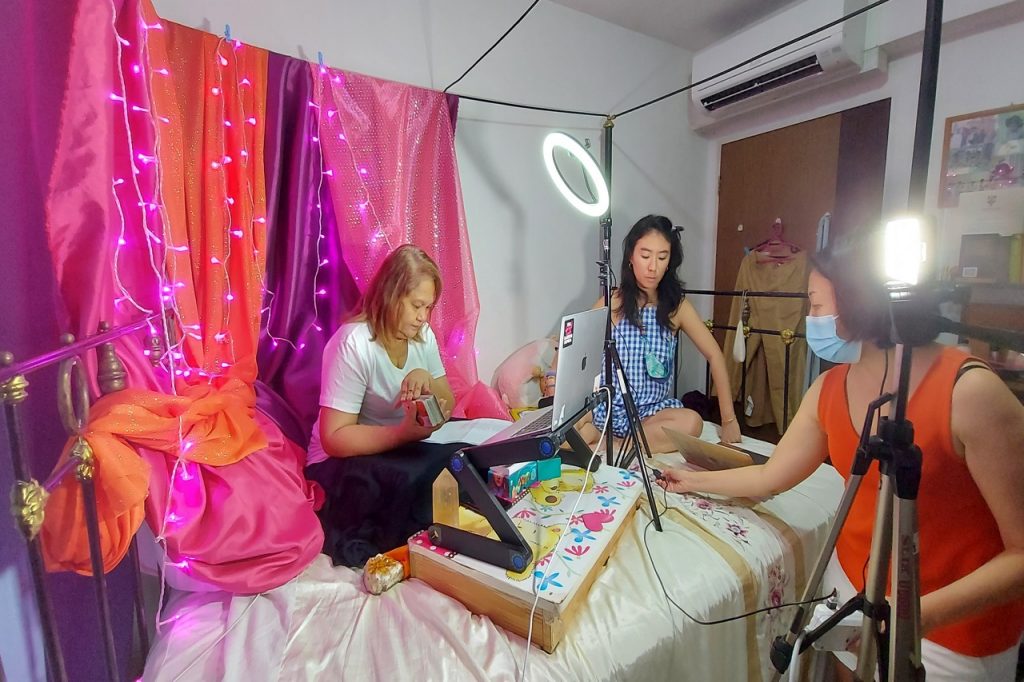
Unpacking intimacy
When I first heard that Not Grey was about ageing and intimacy, I assumed this meant the travails of dating, romance, and sex as an older woman. Then I read the description of the show in N.O.W’s programme booklet, which opens with a quote from Audre Lorde, the feminist activist and writer.
“We tend to think of the erotic as an easy, tantalizing sexual arousal. I speak of the erotic as the deepest life force, a force which moves us toward living in a fundamental way,” she writes.
Not Grey grew out of a project its creator, Salty Xi Jie Ng, started while doing her MFA in Portland, Oregon. (Full disclosure: Xi Jie and I are friends, though N.O.W was pitched to RICE separately.)
“I’ve always been interested in seniors as people, and the idea was to excavate the inner worlds of older women, and create a project with older women, for older women,” she explained. The result was The Grandma Reporter, a publication “like something an old lady would flip through in a waiting room’. Its first issue explored senior women’s style, while its second discussed intimacy.
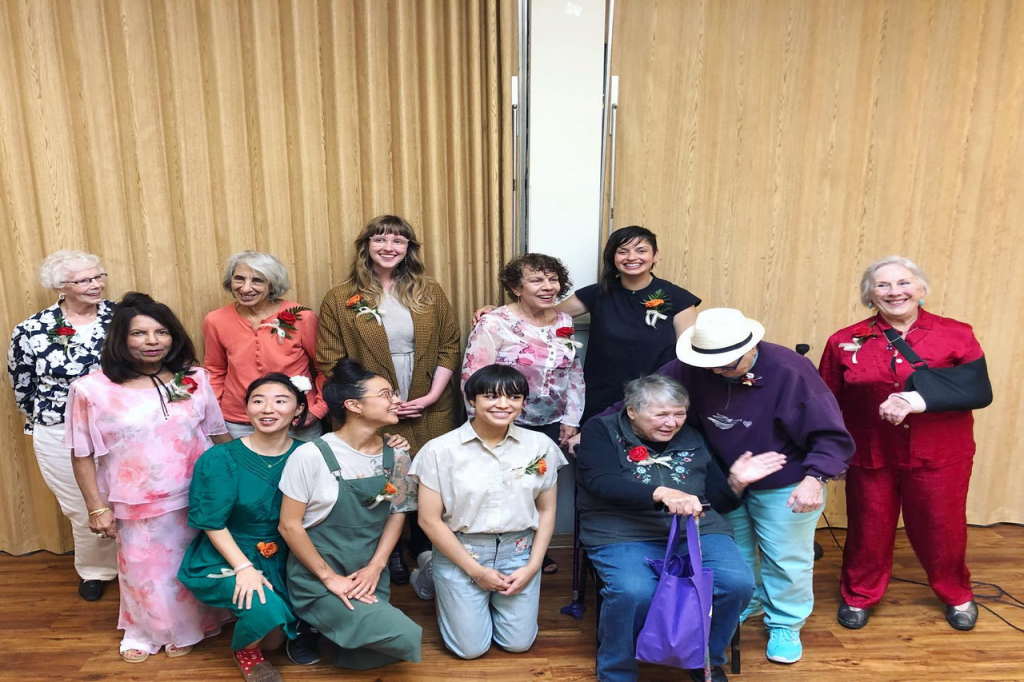
In developing the project for the stage, Not Grey’s performers took a broad view of intimacy—in part because many of them found it difficult to talk about its sexual or erotic aspects, but also because its other dimensions were just as fascinating.
“We looked at the many different ways intimacy can manifest, like your relationship with yourself, with family, friends, nature, and physical intimacy, of which sex is only one component,” said Xi Jie.
Asked how she would define intimacy, Faizah spoke of her breathwork practice. Following the breakup of her marriage, she was introduced to breathwork through a chance encounter with an Australian practitioner.
“To me, there is no deeper intimacy than being with the breath,” she said. “I’m very conscious of it, moment to moment—that without it, I will die. But understanding the breath is what’s brought me to the depth of who I am.”
“Intimacy is perhaps best dealt with lightly, because otherwise it is too painful.”
For 80-year-old Lian Ye, the transience of intimacy—a hug which must end, a fleeting touch—is a double-edged sword.
“To me, intimacy is about the bond you share with another person. The people closest to you, like your left and right hand,” she says in Mandarin. “I like intimacy. Everyone loves it. But the other side of intimacy is that it brings pain.”
She spoke of how she’d always been very close to her mother and sister, right until they passed away. “Our bond wasn’t destroyed. It still exists, and it becomes an emotional burden. So I would say that intimacy is perhaps best dealt with lightly, because otherwise it is too painful.”
“When I’m alone, I start to yearn for what I shared with them. I will never forget it. It is carved into the tablet of my heart.”
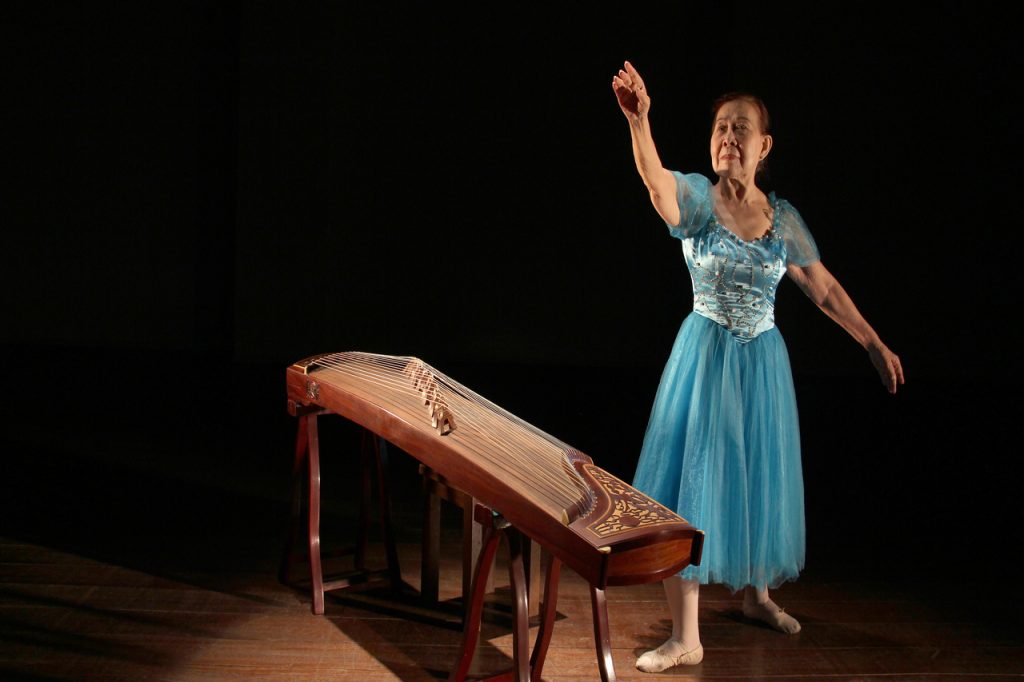
Living on your own terms …
Despite their vastly different backgrounds, Lian Ye, Faizah, and Zubee all share certain traits: a reluctance to define themselves by others’ standards, an insistence on nourishing their inner lives, and a refusal to apologise for their wants.
Throughout our conversation, Lian Ye described her general approach to life as ‘hurtling headfirst’ into things, be it dance or picking up violin as the only elderly student in a class of children (or signing up for Not Grey). Meanwhile, Faizah had been accustomed to being the ‘black sheep’ of her family from an early age, with little interest in the demands of convention.
“When you’re young, it’s painful to be told this sort of thing, but it’s become a badge of honour. If I wasn’t who I am, I wouldn’t have been able to stand in front of the entire Cabinet and tell them I’m going to say no to their policy paper,” she quipped. (As a former NMP, she made headlines in 2013 for voting against the Government’s controversial Population White Paper.)
On the other hand, Zubee struggled to find the same self-assurance in her youth. By her own admission, she worried a lot about what others thought of her as a divorcee and a single mum, “which could be seen as a failure by societal standards,” she said.
“So in a sense, I have a lot of things to ‘account’ for, in terms of not meeting those standards. But you can create a life, you can choose what you want to do, and I think that’s the exciting part about our individual journeys.”
And yet, asserting the right to your own journey can be uniquely difficult for women. As Zubee alluded to, the demands of gendered norms and roles—playing the nurturer, caregiver, and household manager, sometimes on top of juggling a career—mean that for many women, their wants end up taking a back seat.
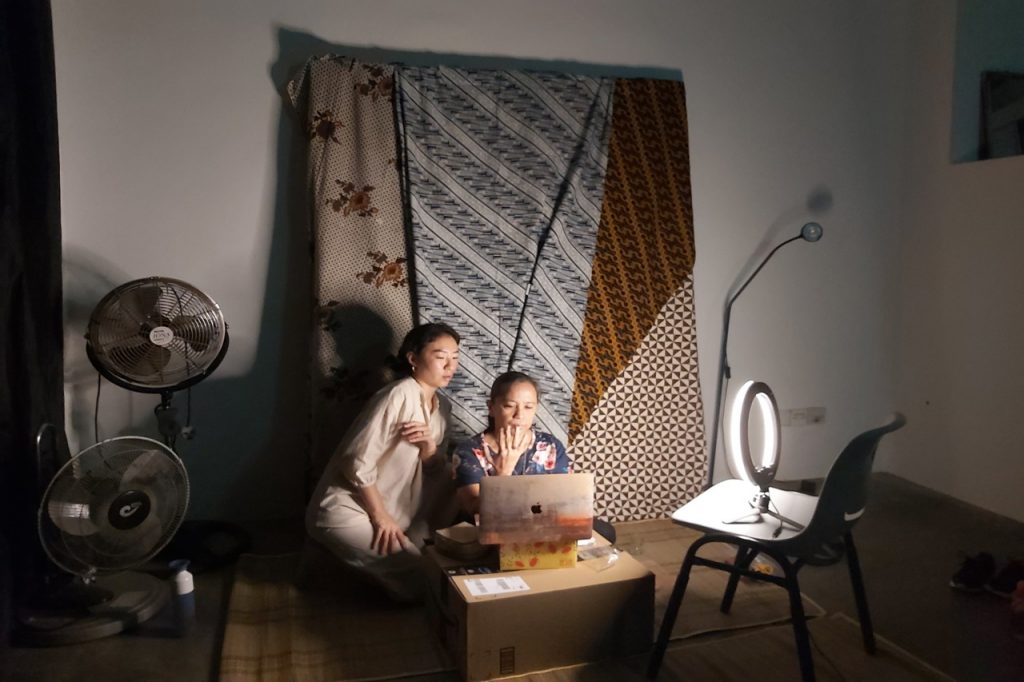
… and who gets to do this
“Doing what one wants to do because one wants to do it is hard for a lot of people, but I think it’s particularly hard for women,” writes Cheryl Strayed in one of her Dear Sugar letters. “We’re expected to nurture and give by the very virtue of our femaleness, to consider other people’s feelings and needs before our own.”
“But an ethical and evolved life also entails telling the truth about oneself and living out that truth,” she concludes.
The question of who gets to live out their own truth is inseparable from socio-economic reality. Much has been written about the commercialisation of self-care, and who gets left out of Living Their Best Life by virtue of being unable to afford a facial or a casual latte. But events like marriage (and divorce) can have a tremendous impact on a woman’s responsibilities, and as a consequence, her capacity to explore her personhood.
“Divorce doesn’t have to create poverty, but it often does, due to things like housing policy and enforcement of maintenance,” said Zubee. “Then there’s your role as the mother, and it’s usually the mother who raises the children. How are you going to have a career, upgrade yourself, and make sure the kids are emotionally supported and not getting into trouble? It’s a lot!”
Sharing her experiences with her former clients at Daughters of Tomorrow, a charity supporting underprivileged women, and hearing their stories in return, cemented her belief in the transformative potential of vulnerability.
“When bad things happen to you, they can break you open. But I believe openness is where you find your true self,” she said.
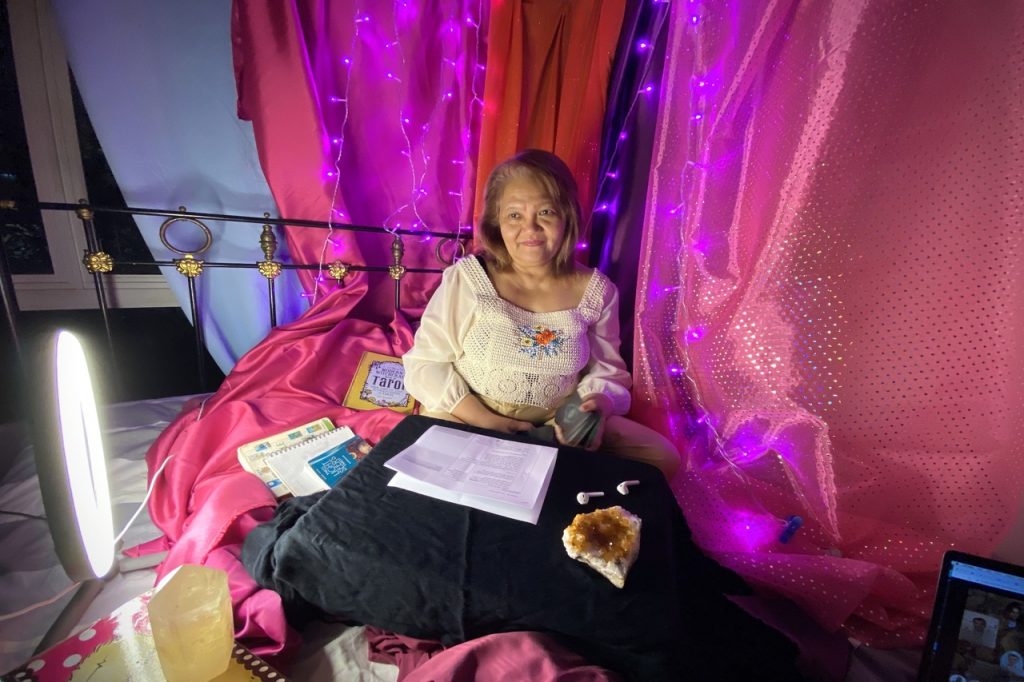
In this, living one’s truth is not only the outcome of putting yourself first. Sometimes, it’s the prerequisite.
After Faizah discovered breathwork, she found that the process mirrored the changes she sought in her own life —“breathing in something different, and breathing out what no longer serves you,” as she put it.
“It sounds really cheesy, but I woke up one morning and said to myself, Wait a minute. I don’t have to be a victim. I can change the story. It came out of nowhere, but these were the exact words I told myself,” she recalled. “Nobody has to tell you what your story is.”
“LIFE DOESN’T FRIGHTEN ME AT ALL, NOT AT ALL, NOT AT ALL!”
She recalled a time during her marriage when the family was living in Brunei, where her husband had been posted for work. Faizah had stopped working to look after her two small daughters, and the trio spent a lot of time reading together at home. One of their favourites was Maya Angelou’s ‘Life Doesn’t Frighten Me’; Faizah would read the poem aloud, and they would shout the refrain at the top of their lungs.
“We would yell together, ‘LIFE DOESN’T FRIGHTEN ME AT ALL, NOT AT ALL, NOT AT ALL’, only for it to become a mantra after I got divorced. We had yelled it for fun in Brunei and now it was real. It became an affirmation to live by.”
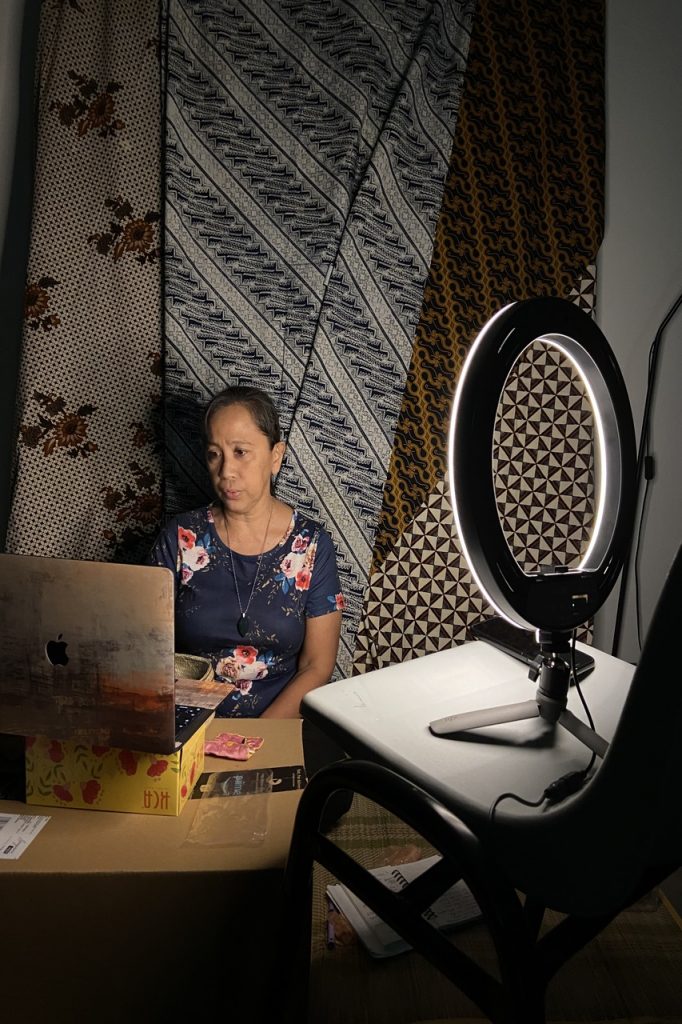
Not going gentle into the night
“It’s always a special time to be whatever age you are, but this time is mine,” says Zubee. “You hit your stride and find an identity you’re comfortable with. I think most older people have had that, and that’s where contentment and serenity can come about if you allow it.”
At this stage of their lives, she, Faizah, and Lian Ye are in a position to do just that. For all three of them, ageing has brought its own rewards: more leisure time, wisdom, the sort of deep-seated assurance in your own strength that can only be gained by testing it. Nonetheless, its less pleasant realities also have to be reckoned with.
In Lian Ye’s case, it has made her more self-conscious. “For instance, when you go into a venue with so many young people, you second guess your decisions. You become more reserved in your actions,” she shared.
While she doesn’t fear growing old, she chose to use her performance in Not Grey to express her thoughts on ageing and mortality. Her piece, a dance item which she choreographed herself, was inspired by The Last Rose of Summer.
“I started from the image of a rose and how it goes through the elements, ” she explained. “It exists in splendour during the summer months, but it will wither, petal by petal. It will go through the elements, battered by wind and rain, and wither and grow and wither and grow.”
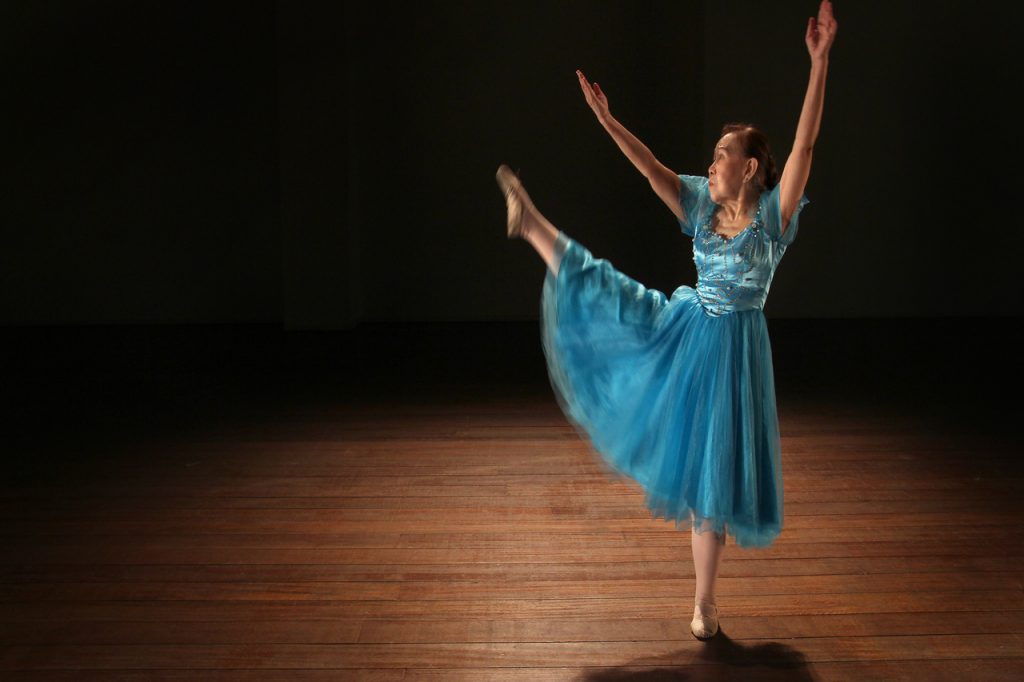
Meanwhile, even now, the weight of expectations lingers.
“Sometimes I embarrass my kids,” shares Zubee, who began reading tarot cards in her 40s and readily admits to changing her WhatsApp profile picture for attention. “I talk a lot, I overshare, some of my ideas seem radical or shocking. At my age, people are like, Zubee, why are you trying so hard? Why can’t you just enjoy your time with your granddaughter or go for walks?”
To Xi Jie, this condescension about how older women should be is exactly what she hopes Not Grey’s audience will reconsider. “I hope the show gets people to think more about ageing and ageism, because I think everyone has a bit of ageism in them. We live in a society that infantilizes everyone—seniors especially,” she said.
“It’s been really interesting to contextualise a Singaporean version of the project, because even with this liberatory lens, we mustn’t forget the figure of the older woman.”
I asked Faizah if, as an older woman, she had found being ‘forgotten’ patronising or liberating. Could it be freeing, in its own way, to no longer be looked at, or feel beholden to beauty standards?
“I never cared much for that sort of thing, but if I were to fade away, it’s not because I’m no longer seen,” she replied. “I mean, who gets to see you? You, what. Even if nobody sees you, it doesn’t mean you don’t see you. I’m the reference point. I decide what the bar is.”
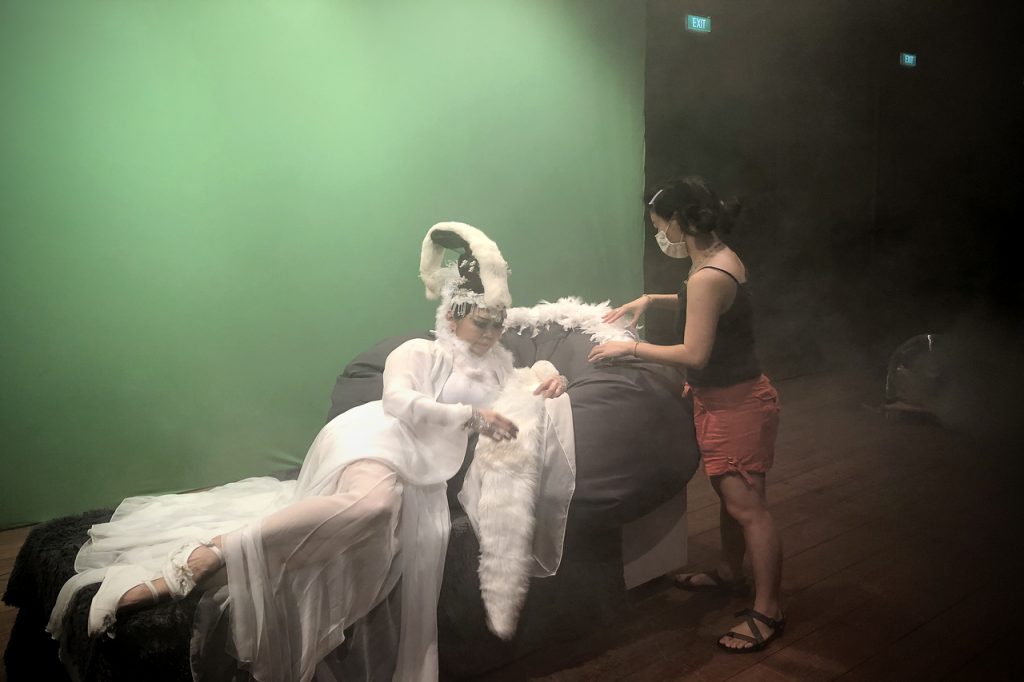
“Personally, I feel like life is a series of cycles,” says Zubee, towards the end of our call. “So much of it requires you to surrender. You can’t control everything. You just have to have faith that things will be all right.”
“And you discover so many new and fascinating things, whether it’s volunteering, seeing the world through your grandchildren’s eyes, enjoying the garden. It’s amazing, isn’t it, Sophie? Don’t you wish you could grow up faster?” At this, I can’t help smiling back into my laptop. (Unfortunately, we run out of time, and I don’t get to ask her to do a tarot reading for me.)
Faizah, too, is looking forward to what the future holds. Our interview falls a few days before her 61st birthday, for which she’s hugely excited.
“The fact that I’ve lived this long is just…gasp. Some people don’t have that privilege, so I’m really excited! I’m a beyond-60 woman with lots of grey hair, and so what? I don’t care if this sounds arrogant, but I’m full of myself,” she jokes.
When I quip that I would like to be full of myself, her reply is swift. “We should all be full of ourselves! Why is it wrong to be full of yourself? What’s wrong with a girl being full of herself? All of us should be.”
“Thinking about your questions has actually been helpful, because it’s helped me realise that yes, it’s a good thing that so much has happened to me in my life,” she reflects. “It’s exciting. I haven’t had a moment of regret.”
Not only is she (not) grey; she’s not afraid at all, not at all, not at all.
Not Grey is rated NC16 and runs online from 22 — 25 July, with a livestreamed dialogue with the performers on 26 July. Tickets are available via SISTIC. Do take note that certain performances will be women-only.
Tell us what you thought of this piece at community@ricemedia.co. If you haven’t already, follow RICE on Instagram, Spotify, Facebook and Telegram.






